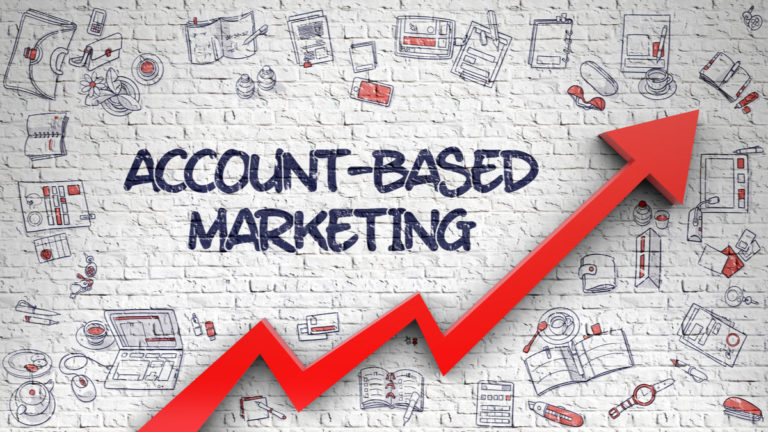Weak people don’t launch successful small businesses. The work requires strength. There is never a rest day for those pushing their new business down the road to success. There is a way to make it a little easier, though. A good small business lead generation strategy can help you attract clients, grow your company, and ensure overall success.
While some may argue that lead generation or drawing in new customers requires a hefty sum of capital or funds to allocate to advertisements and other marketing strategies, the truth of the matter is, lead generation can be achieved even with the most in-budget resources for small businesses.
What is Lead Generation?
Lead generation is a well-heard-of expression in the world of business. The concept behind it is fairly simple, but one might assume it is hard to achieve. In simpler terms, a lead generation strategy is any method or procedure implemented by the business to attract potential customers. For example, a business’s lead generation tactics may include advertising on a social media platform, such as Instagram, to prompt followers or users to provide their email in order to learn more about the business. Gathering emails from users is considered a lead. With these leads, you reserve the opportunity to contact them further, informing them about your products and services. This will help you reach the ultimate goal of turning those leads into customers.

Why is Important for Small Businesses?
Chances are you are new on the market, which requires a lot of legwork to kick things off. This also means that you are low on customers and are looking for various ways to get your brand out there. Here are a few key points as to why small businesses should want to generate leads:
- Gain awareness
- Increase sales and profit ratio
- Target desired customers
- Get customers for less than other advertisements
Lead Generation Ideas for Small Businesses
Small business lead generation is driven by establishing a significant presence in the market and especially in the sector of potential leads. Here is a list of approaches to help you achieve successful lead generation strategies.

Live Chats and ChatBots
The live chat sector is a potential small business lead generation. Although some customers may still prefer to call a business directly, the number of live chat users has exponentially increased. According to recent studies, a majority of U.S. consumers prefer using live chat to inquire about a business through their website. This is why it is essential to implement live chat, regardless of your target customer demographic.
The way to generate leads through a live chat is by requiring the user to enter a few personal details about themselves, like their email address. That way, even if they leave the chat before becoming a customer, you can reach back out and try again.
Optimize Content
Digital marketing has grown beyond just publishing blog posts and distributing them via brand-owned channels. While that used to work well, things have changed over the past few years. With the ever-evolving world of tech and marketing, customers have seen it all by now. This is why businesses are aiming to revamp their content and optimize it to reach their desired customers.
The content creation game is about providing profound and stimulating material. This includes revisiting your old blogs, articles, or any type of content you already have up and revamping it to match current terms. However, it is not enough. While content quality is fundamental, your content strategy will fail to impact your company’s bottom line unless it is optimized for capturing and nurturing small business leads.
Establish Your Business as an Authority
Brand authority has a great impact on your small business lead generation efforts. Establishing your brand as an authority in your respective industry will push prospective customers to listen to what you have to say.
Effective social media scouting directly correlates to presenting your target audience with valuable content to read or watch before they move on with purchasing. You can offer meaningful information and even set up a useful FAQ page to help with any questions that they may have. Their questions and concerns can be addressed via blogs, articles, and other favorable resources.
The more you prove your brand as an expert, the more prospective customers will seek your advice and trust you.

Use LinkedIn to Drive Leads
Many of you may consider LinkedIn to be a spot for job searches and catching up with old high school and college friends, but the well-established platform offers much more. It is a place to make connections, even as a small business.
Create a company profile on the site — known as Company Pages — for a chance to be seen in the search results. Additionally, LinkedIn provides extra tools like demographic information about your followers as well as metrics on each post your company publishes. This can, in turn, help your business better understand the customer type you are attracting.
After you set up your company page, you can promote your posts and drive traffic to a lead acquisition page on your website.
You can also make connections with other members on LinkedIn, which can eventually turn into small business leads and then into sales.
Create Videos
Video marketing provides a distinctive way to express your ideas to the customer. There is just something about transmitting your message through images and sounds that speak well to audiences. Video marketing presents a unique level of entertainment and engagement that most potential customers prefer over text — and, when it comes to marketing, it is all about engagement.
Youtube provides a cost-efficient way to showcase your videos in an environment where the viewer can click through to your lead acquisition form.
Set up a Campaign
No matter which option you choose, you will need to plan it out and monitor the results. That’s called running a lead campaign. Executing an effective campaign is essential to get your leads flowing.
Social media platforms are somewhat built to help you guide your followers to take action. Whether it is the swipe-up option on Instagram stories or the engaging Facebook posts that direct you to various links, social media has an undeniable power to get you going.
Utilizing these tools to your benefit will help your brand grow and reach larger audiences.
Does Lead Generation for Small Businesses and Big Businesses Differ?
Yes, from tactics to resources to follow-through, lead campaigns vary wildly based on company size. Here are some significant differences:
- Large companies are more aware of social media and its impact. Studies show that 76% of larger companies use social media platforms to profile possible customers. At the same time, only 41% of small firms use social media.
- Big companies have the staffing and financial capability to rely on cold calling
- Larger companies tend to execute a more generic, “one-size-fits-all” approach to customer contact, such as email marketing. On the other hand, small businesses add a personal touch to every customer inquiry, making them more approachable.

To Sum Up
Small business lead generation is successful when it increases customer acquisition. The idea behind it all is to pique the consumer’s interest and push them to take action toward your brand.
Lead generation for small businesses is essential for a myriad of reasons: to engage with possible customers, to grow your client base, and, most importantly, to generate revenue.
Read on to learn more about how to sell leads to earn more profit.


